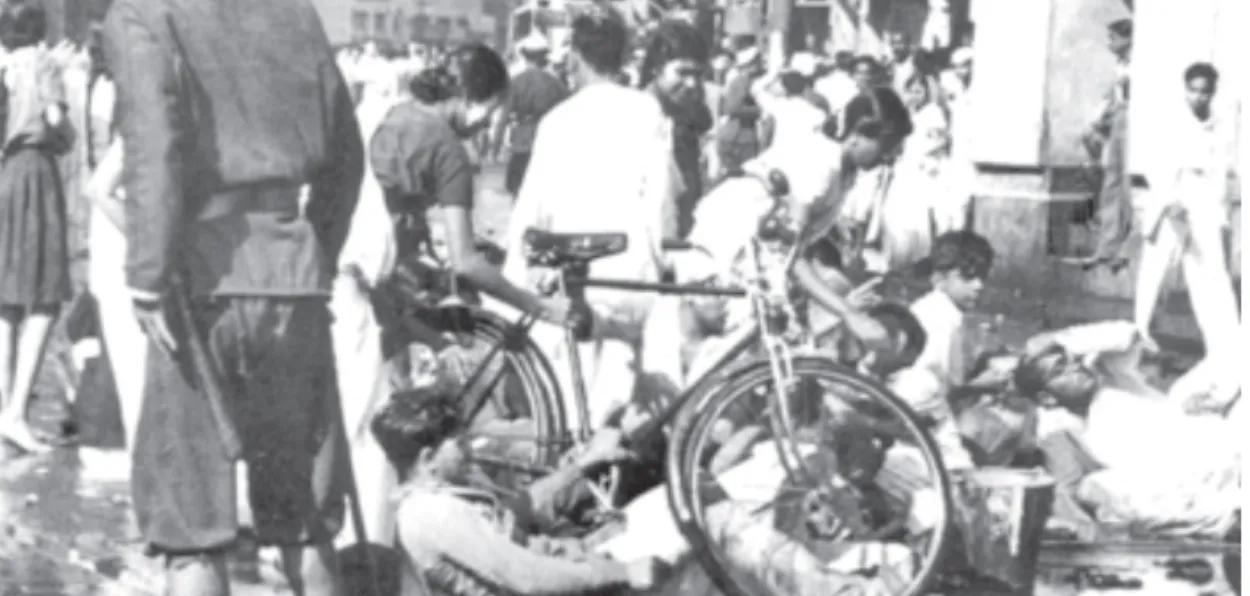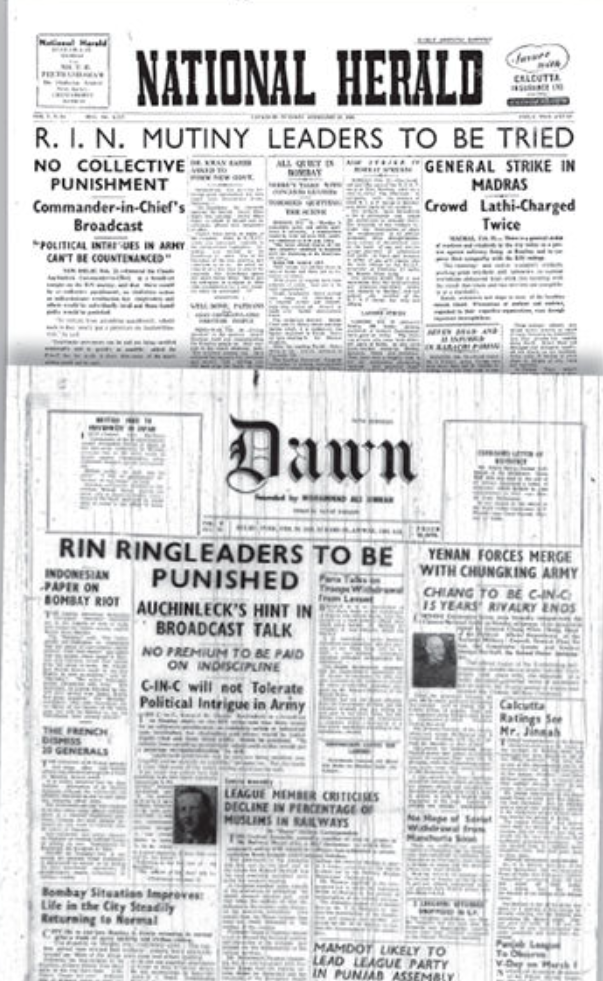
Saquib Salim
The Royal Indian Naval (R.I.N) Mutiny of 1946 is considered the most important revolt by the Indian soldiers against the British in Colonial India after 1857. Jawaharlal Nehru said, “In 1944-45 we saw the Indian National Army (Azad Hind Fauj) in action; in 1946 'Indian National Navy' (Royal Indian Navy), (Azad Hind Nousena) made its debut in action, which struck the very root of the British administration in India. Many common features were still alive in the two National Forces.
However the three years were different in the tacit techniques and the effectiveness. INA had many facets that drew all the forces near and supported its dynamic causes within which the objects remained crystal clear. The Nation stood as one entity to attain its object! The purposeful and bold steps of the Indian Sailors then brought them closer to all freedom-loving people of the world today, and thus they are endeared to all.”
The revolt was across all the naval bases of the Royal Indian Navy in which almost 80% of the ships and 30,000 naval ratings took part. The ignition came from the arrest of Balai Chandra Dutt who was arrested for raising nationalist slogans and keeping anti-British literature on 1 February 1946.
The actual revolt known as the R.I.N Mutiny started on 18 February 1946 under the leadership of Muhammad Shuaib Khan (also known as Punnu Khan), who was the Leading Signalman at INS Talwar. A 14-member strike committee was formed and M. S. Khan was chosen as its President with Madan Singh as his deputy. The meeting where he was chosen as the leader was also attended by B. C. Dutt whose arrest triggered the revolt. However, the real reason was that the naval ratings were affected by the ideology of Subhas Chandra Bose led Azad Hind Fauj.
 Newspapers reporting the RIN Mutiny
Newspapers reporting the RIN Mutiny
Biswanath Bose, one of the naval ratings who took part in the revolt at INS Talwar, later recalled, “A Stalwart person, blue-eyed. Shouldered the responsibilities which; no ordinary man would venture to do, particularly at the very crucial hour. He had the required capabilities of guiding and directing the Committee. Reserved. Faced many odds and criticisms for his agreement to surrender unconditionally. The author had met him only 2/3 times before and after the arrest. Looked pale and drab at Mulund Camp where the trial started by the Enquiry Commission appointed by the Government.”
Khan declared war on the British Government. Bose wrote, “At about 10 a.m. President Khan came to the break-water. The news of his arrival spread like wildfire. All the ratings expected some directive from him, an order to begin an offensive to relieve their brothers at Castle Barracks…. Khan boarded the (INS) Kumaon, mounted the bridge, and addressed the ratings through the mike. He explained what was happening in Castle Barracks and ordered all British officers to abandon ships. Addressing the Indian officers, he said: "I call upon you to join us in this life and death struggle. It is our common battle against a common enemy. If, however, you are not prepared to cast your lot with us, you too had better follow your white masters and leave the ships."
After 4 days of the revolt, Indian political leaders advised the naval ratings to surrender. In the words of Bose, “We were completely shaken and puzzled to hear what Sardar Patel had advised our men ‘surrender our arms unconditionally’ and in doing so, no drastic action would be taken by the Government or Naval authorities..”
It was reported that on 23 February 1946, “In a tired voice, Khan reported on his talks with Sardar (Patel). Finally, he said: 'I think that having received this assurance, we should now surrender and lay down our arms. We can rely on our leaders to see that justice is done. Do not think that we are surrendering to the British. We are surrendering to the people because the whole nation is with us."
English Naval Officer Lt. RINVR Percy Gourgey, who was a witness, later wrote about his conversation with Khan. When asked what if they were arrested or killed by the British Government in the course of this revolt, Khan replied, “Others will take up our cause. Public opinion will be aroused. Agitation through the press, platform, and Parliament and in the Legislative Assembly will be vigorously conducted by our supporters. Mass countrywide meetings will be organized. So loud will be the voice of the people that the authorities will sooner or later be forced to release us, and appreciate the justice of our cause.”
Several commentators and historians claim that the ‘mutiny’ was not nationalist and that food quality was the reason for the naval ratings’ revolt. They must read what Khan told British officers, “The principle of colonialism, British or other, is bad because it denies equality and freedom to nations and individuals. It hinders the development of their particular genius, best expressed in freedom. The sooner colonialism ends the better! Genuine independence, which India wants, is best! History has shown that British colonialists only part with power when forced to do so, as was the case with the United States of America.”
ALSO READ: Is Trump's Gaza Riviera plan ploy to usurp strip’s oil deposits
More than 400 people, mostly in Mumbai (then Bombay) were killed by well-armed British troops during these four days. Most of the casualties were civilians who came out in support of the naval ratings.
